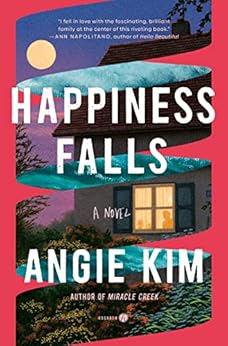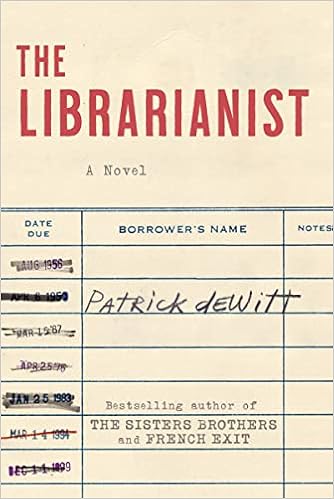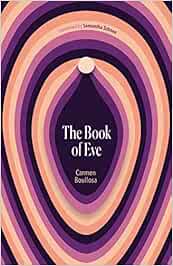4 Stars
This is a retelling of the Biblical Garden of Eden story.
After the departure of Adam and Eve, there are approximately 50 habitants in eden (always spelled lowercase). They care for their orchards, fields, and vegetable gardens with the promise of a life free of want and death. They are overseen by angels, described as large birds whose bodies are covered in blue feathers; they have no arms so must use their beaks and talons.
A woman named Tabi, one of the orchard workers, escapes eden for the outside world, leaving behind three individuals who miss her: there’s Ebon, who worked beside Tabi in the orchard; Alum, an informer who reports every wrongdoing to the angels; and Jamin, an angel who flew too close to the tainted earth beyond eden’s walls and hurt one of his wings so has been given the lowliest of duties. Ebon wonders whether he should risk leaving eden to find Tabi and bring her back.
As portrayed in this novel, eden is not a paradise. The habitants must work; the food they eat is produced because of their hard toil. Their lives are totally regimented: the ringing of bells dictates their daily routines. Once a week they must observe a strict fast. They live lives of “sublime uniformity” because “Order is the order of the day.” There is no privacy; “no concealment or withdrawal remains a private matter.” They work, eat, and pray together and sleep in a dormitory. In return for moderate comfort and security, they are expected to strictly obey all the rules.
The place made me think of a plantation or a work camp with slave labour. Though their basic needs are met, the habitants have no autonomy; they are assigned work and have virtually no choice in how they live. It is also made me think of North Korea, a police state where everyone is under surveillance at all times, conformity and cult-like obedience are demanded, and propaganda is used to portray the outside world, which they are not allowed to visit, as a chaotic, dangerous place.
This version of eden is not sinless either. Habitants are sometimes lazy and fake illness or injury to get out of work. Sneaking food is also not unknown. Alum uses physical violence to enforce and punish. The angels too are not unblemished because power corrupts: just as the “bodies of the gardeners have thickened and grown tough . . . and their hands . . . have grown calluses and cankers, so the angels can’t be blamed for hardening . . . [in face] of the never-ending weight of their impeccability. Pomposity and pride are the commonest of their failings, along with spite.”
For Tabi, it is the eternal sameness and boredom of her protected life that are the problem; eden is “endless, sullen, constant, dull, sedate.” She wants something more “tantalizing and extravagant than the everlasting days of this, the boredom and the certainty . . . everything repeated and familiar, the domesticity, the blameless life she is ordained to lead.” She wonders how anyone can be untroubled and satisfied “when all the future offers him is repetitions of the past?” She is “Bored by the drudgery of being richly blessed” and wants to go “where she is startled and surprised, a world that is both limitless and meaningful.” In eden all is known: “The future was the past. Nothing was a mystery. There were no stories to be told except the ones that preached obedience.”
Though Tabi is absent for much of the narrative, her personality is fully developed. She is a restless free spirit, described as the “garden’s loudest mouth” and “an agitated bird.” Ebon depicts her as moody, as someone who “laughs too readily” and as someone who “seems to think it is her duty to oppose the masters and their ministry but not her duty to be dutiful.” She is “not restrained or underfed in anything she does or says.” She questions the sermons delivered by the angels and even the existence of the lord. Even Ebon admits that she can become tiresome but also acknowledges that “she is easy to forgive and harder to forget.”
The book can be read as a critique of religion which promises eternal life if rules are followed. There is a hierarchy to angels, just as there is a hierarchy to the clergy of most organized religions. The angels do little work; pompous and arrogant, they enforce rigid routines and rules and dispense propaganda and punishment. They serve a lord who is never seen or heard. Tabi wonders whether the habitants are there to work for the angels who are dependent on humans: an angel’s role is “to be served and waited on, fed and groomed by humankind. That’s why the lord has made us everlasting, free from death, because the angels need us so. They can’t caress themselves. Or build, or cook, or use a hoe, or scratch their backs, or make a barrow out of wood. Or grow tomatoes, come to that. An angel’s good for nothing, except for ringing bells. And prayer.”
The novel certainly provides questions for the reader to ponder, especially about the value of freedom and free will. Is immortality without freedom of thought or action better than mortality with freedom of choice? Is total security enough to provide happiness? Can blind obedience ever be good?
I recently read The Book of Eve by Carmen Boullosa (https://schatjesshelves.blogspot.com/2023/08/review-of-book-of-eve-by-carmen-boullosa.html), a feminist retelling of the Book of Genesis and it has similarities with eden.
Eve thinks of the Garden of Eden as bland and speaks of what she gained
outside: emotion, pleasure,
knowledge. Likewise, Tabi experiences “guilt,
regret and shame, feelings she has not experienced in eden,” but she also sees
joyfulness and “richer feasts outside.”
I’ve read Harvest by Jim Crace and really liked it (https://schatjesshelves.blogspot.com/2015/11/review-of-harvest-by-jim-crace.html) and I certainly enjoyed eden. I’m definitely going to check out his other novels as well.
Note: I received a digital galley from the publisher via NetGalley.








